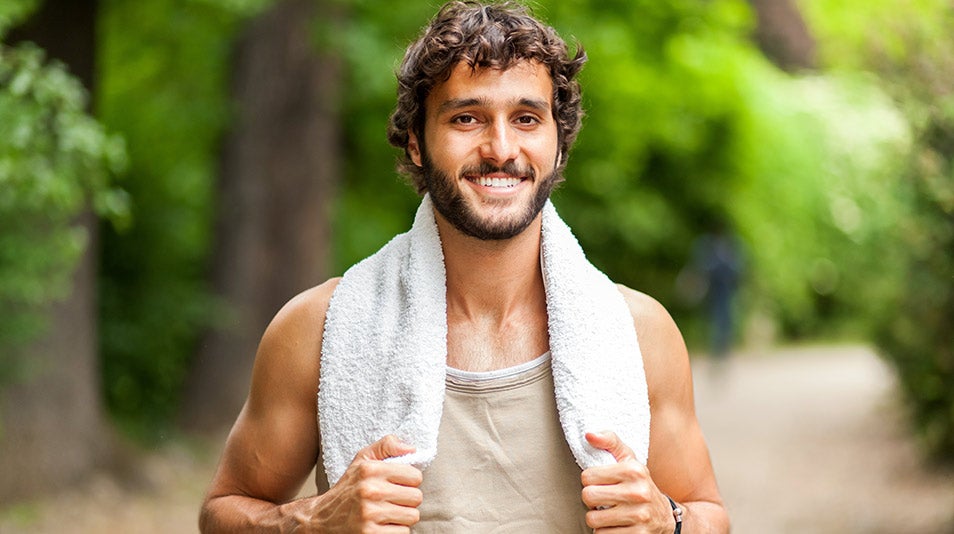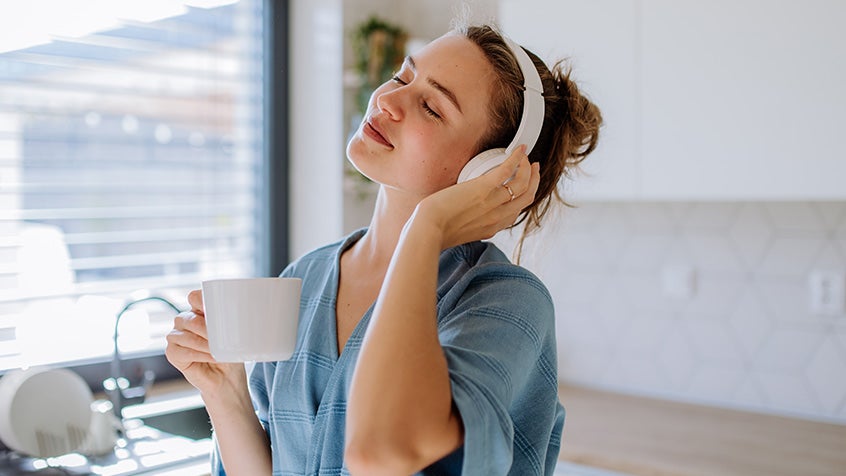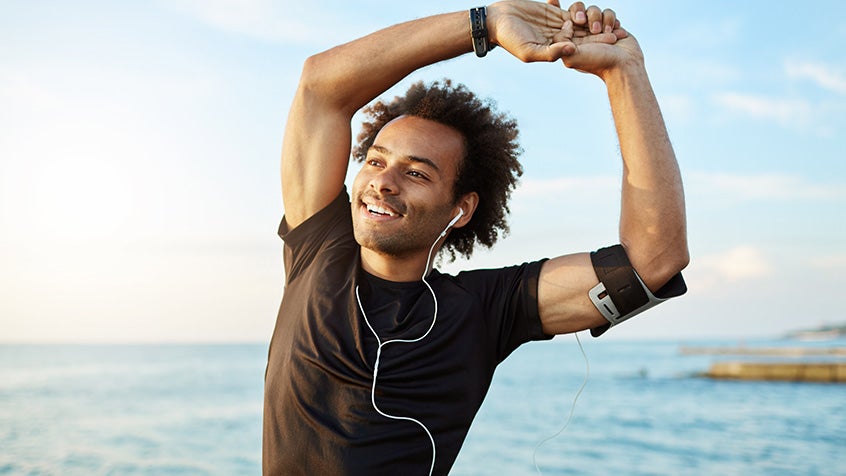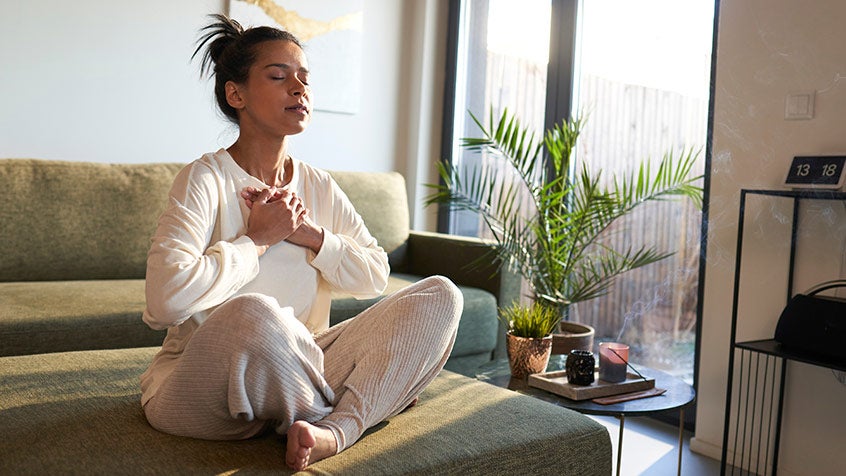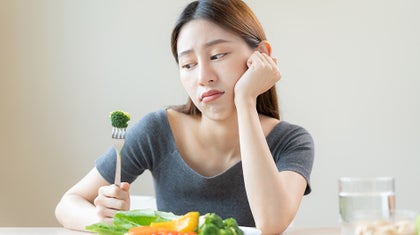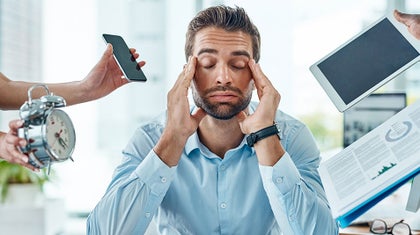Make your wellbeing the ultimate #1 priority
by Carol Saldanha on Thursday 11 January 2024
4 min read
Before the pandemic hit, I had a job I didn’t like and barely paid me enough to live on. Feeling stressed and overwhelmed was the norm, and I started collecting something no one would envy: sleepless nights.
I kept working like crazy, taking advantage of any free time to look for another job. ‘Fun’, ‘exercise’ and ‘free time’ disappeared from my vocabulary.
My rock bottom was an episode of debilitating lower back pain so intense I burst into tears because I couldn’t dress after showering. I kept my wellbeing so high on the shelf I couldn’t reach it.
But that debilitating pain was what saved me from a complete burnout. It made me stop and redefine my priorities and put my wellbeing front and centre. Since then, I’ve been more active than ever, made time for my friends, and reconnected with creative passions that keep me centred and happy
What is wellbeing?
Wellbeing is a holistic way to look at our health. It takes physical, mental, emotional and social health into account. We can describe it as how we feel about ourselves and our lives. So, looking after our wellness ensures we care for all areas of our lives.
Are you prioritising your wellbeing?
I already gave you a couple of cues: poor sleep and feeling overwhelmed. But there are other red flags to show we’re not taking good care of ourselves:
Constant fatigue – I always felt tired – even after a (rare) full night's sleep. That also happened because I couldn’t get proper rest or relaxation.
Social withdrawal – That wasn’t much of a choice, as we had endless lockdowns in Melbourne. But even before then, I was always ‘too busy’ to catch up with people.
Neglecting self-care – Ignoring or neglecting personal self-care routines, such as exercise, healthy eating and regular health, can indicate a lack of attention to our overall wellbeing.
Physical symptoms – In my case, lower back pain became an ongoing issue. And it worsened as my mental health declined. According to the American Psychiatric Association, chronic pain and mental health often walk together hand-in-hand.
Why should our wellbeing be our #1 priority?
If wellbeing considers our health as a whole – physical, mental, emotional and social – then putting our wellbeing first has the potential to improve many areas of our lives.
When we feel well, we usually perform better at work, we can be better friends and parents, and live happier, more fulfilling lives.
How do we prioritise our wellbeing?
After struggling for months and getting stuck in a vicious cycle of lack of sleep, constant pain, then less sleep and more pain, I decided enough was enough. I started to look for ways to improve my wellness and recover my quality of life.
The first thing I did was to look for professional support. I talked to my GP and started therapy. Therapy helped bring things that were important to me back into my life.
Here’s a list of actions I took that still work for me today. Give them a go – they might work for you, too!
Eat nourishing food
When I’m not well, I eat comfort food and whatever is easy. I engaged a nutritionist because I unsuccessfully tried to change my habits alone. Eating well made me feel more focused, energised and happier with my body. Try finding easy recipes to start, as this might help motivate you to get in the kitchen and cook nourishing meals. Nutritious meals = brain power.
Unleash the artist within
I joined a choir. I learned macrame techniques. I went treasure hunting in op shops for objects I could up-cycle. My current project is refurbishing a chest of drawers. Whether it’s learning to draw, creative writing or painting by numbers, doing something creative that interests you can be a great way to relax your mind.
Mindfulness
It’s not about just sitting still. It’s about staying present in the moment. And a moment could look like a couple of minutes of your day. Just sit back, slow down and remember to breathe.
Socialising
Spending more time with friends and loved ones was a turning point for me. I’m a friendly creature, so the end of lockdown meant quality time in real life with people again. You don’t need to hit all the pubs and clubs to be a social butterfly. Catching up with a friend over a cup of coffee at home, joining each other for a walk, or even a phone call can be just what you need to fill up your social cup.
Exercise
My tip is to start small: pick one activity you like and go from there. There is evidence that physical activity lowers the odds of developing mental health problems.
If you’re interested in ticking a couple of boxes at once, Virgin Active clubs offer classes that incorporate both mindfulness and movement, such as Reformer Recovery, Yoga, and Sound Bath. Not a member? Sign up for a free trial today.
Related articles
Move
3 min read
Our 2026 ins and outs for wellness
Nourish
3 min read
Food mind games: how stress affects your appetite
Unwind
3 min read
Are you burnt out?
Enjoying our blog?
Sign up to our newsletter to get updates on training, healthy living, news and events.
